By John Stapleton
The Albanese Labor government is in a death spiral, suffering savage reputational damage from its highly divisive and failing campaign to change the Referendum and establish an Indigenous Voice to Parliament. It has been desperate to distract attention from its own failings in recent weeks.
Hence the flurry of announcements about windfarms.
For the government it’s been a disastrous miscalculation. Community warfare might be the last thing this government needs right now, but it is exactly what they’ve got, and on a front that everyone can agree on, saving the whales.
The massive environmental vandalism, the destruction of marine and bird life, the destruction of the visual amenities of the coast, the destruction of the professional and recreational fishing, and the expected 50% drop in house values have united the community in opposition to the government’s renewable agenda.
A Massive Backlash
The most left wing government in Australia’s history, led by Prime Minister Anthony Albanese, has been left like a cormorant on a rock, unable to explain its aggressive push to install ugly, destructive and hugely expensive windfarms, why it is wrecking environmental vandalism along the country’s 35,000 kilometre coastline.
Once upon a time Australians never questioned why Australia’s left were in lockstep with the World Economic Forum’s dystopian visions of mankind’s futures, the Davos billionaires pursuing their highly profitable agendas, including climate change.
Suddenly it is all out in the open.
The government’s so called community information sessions held up and down the east coast in recent weeks have been a public relations disaster, igniting a social media storm and proliferating Facebook groups.
In just one example, the Facebook page focusing on the Illawarra, the area south of Sydney which is set to have a 1400 square kilometre windfarm, The Illawarra ( Wollongong, Shellharbour, Kiama ) Wind Farm Chat, has gone from just a few straggling members to almost 2000 members in a matter of days.
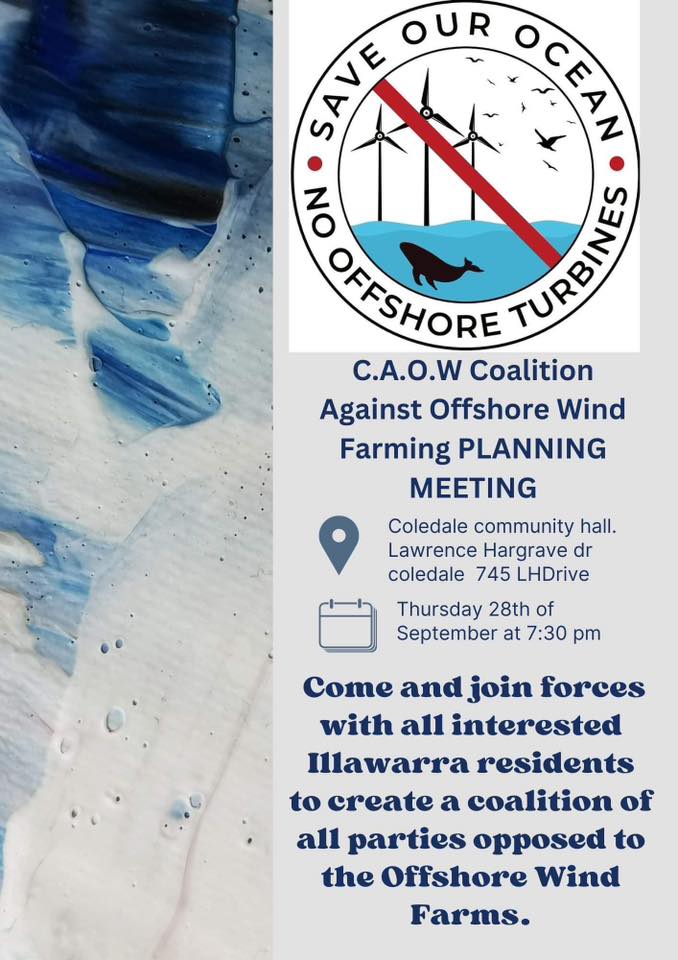
The government’s oft repeated claim that Australia will become an international renewable energy superpower looks increasingly flimsy, if not downright dishonest.
The claim is eerily reminiscent of the Labor Party’s claims for their National Broadband Network. The scheme was touted as the “information superhighway of the future” and mopped up something like $100 billion in public funds before the government had the nerve to turn around and charge users for the service.
The international superhighway of the future turned into a goat track, delivering some of the world’s slowest and most expensive internet at the same time as much of the rest of the planet’s population is rushing to exploit the transformational opportunities of the mycelium of our age, the internet.
Even if you’re dreams aren’t populated with eerie, futuristic visions of derelict, rusting windfarms, those images stand a strong chance of becoming a reality, the government’s claims they are turning Australia into a international renewable energy superpower looking more and more like just another preposterously expensive waste of public funds.
Killing Whales
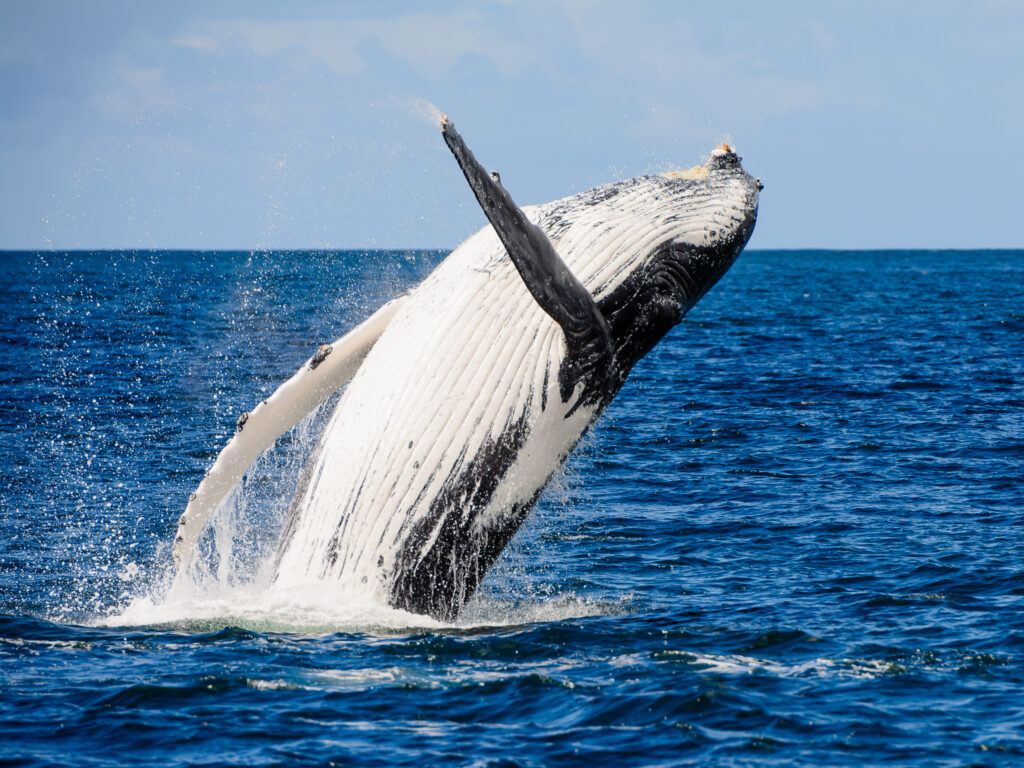
Whales hold a mythical, mystical place in all coastal cultures, nowhere more so than along the east coast of Australia. Ironically, it is exactly at this time of the year that the whales come close to shore, and people gather along the shores and headlands to point in excitement at the sight of them, many with new born calves, breaching as they make their way from the Great Barrier Reef to their summer feeding grounds in the Antarctic. It is one of the longest animal migration routes anywhere on the planet.
Australians are slow to protest and many other points of intersection, gender, race, the rights and wrongs of the Covid era, are vexed and confusing for the average punter.
But whales, everyone can agree on whales. They love them. They are beautiful, intelligent, extraordinarily complex if not magical creatures, and they deserve to be protected at all cost.
That the proposed windfarms are slap bang in the middle of their ancient migration route is incontestable.
Here is one of their own maps showing the area south of Sydney.
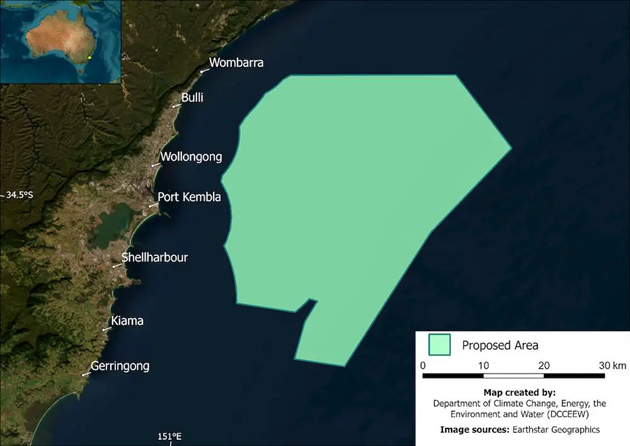
Galvanising the Community
As one speaker noted at a hastily organised and very well attended community meeting at the Coledale Community Centre north of Wollongong noted this week, the windfarms were being proposed in the once heavily industrial working class areas north of Sydney, the Hunter Valley area, and south of Sydney, in the Illawarra.
If it’s such a good idea, why not put it directly off Sydney harbour?
The answer is obvious. Because it would cause a multi-million dollar backlash which would ultimately bring down the government, with the enormous wealth of the city, the comfortable “progressive” left leaning wealthy, with their beautiful houses, fabulous yachts and highborn social influence. The last thing Sydney’s Greens want is ugly windfarms killing marine and bird life in their own backyard. Send it down to the peasants.
But the coastal areas north and south of Sydney are no longer populated solely by the working class, with many professionals having moved out of increasingly unliveable metropolis to create a better life for themselves and their children.
And they’re no longer a pushover for governments instituting their agendas regardless of the interests or responses of the public.
“Put it down on the Gong, not on Sydney’s Northern Beaches,” the speaker said. “They think they can walk all over us. It reeks of politics.”
It also reeks of class warfare.
The government’s approach to what the public were led to believe were community consultation sessions, a chance to ask questions and express concerns, has been visceral.
Public servants handing out information sheets and arrogantly dismissing concerns of the public, the ugly face of the sneering and jeering left, has infuriated the citizenry.
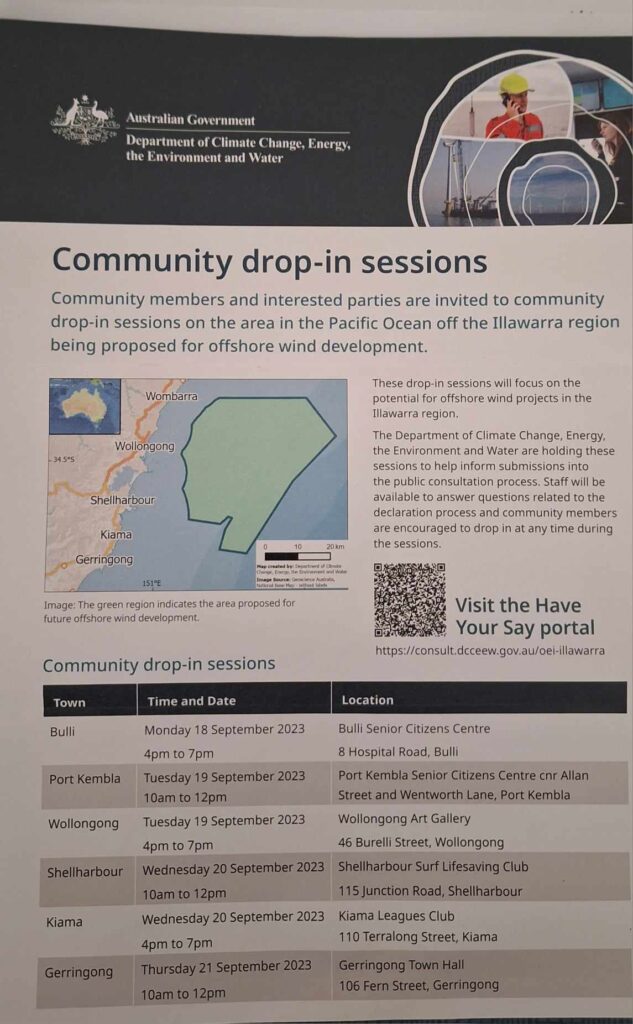
The government met furious opposition at every last one of their so-called “drop-in” sessions.
Here’s just one story, this author’s response to the session held in Shellharbour, which he attended.
Politics. It Was Always About Politics. And Money.
Never doubt that windfarms are highly political. The Labor government, in an echo chamber of its own making, thought they were on a winner.
Instead Opposition leader Peter Dutton, once widely viewed as unelectable and now inching into serious contention, has been quick to recognise the extreme level of community angst.
Opposition Leader Peter Dutton is calling on the government to reopen the consultation process for the Hunter Coast Offshore Wind Project.
Sky News reported that the Opposition leader has spent the Wednesday morning meeting local residents and business owners on the New South Wales mid-north coast who are against the wind farm project.
The declared wind zone stretches 18,000 square kilometres from Swansea to Port Stephens and is at least 20 kilometres offshore.
The Albanese government says it received almost 2,000 submissions as part of its consultation process earlier in the year and in July it reduced the size of the wind zone to exclude the central coast town of Norah Head following fierce community backlash.
The community in Port Stephens say their concerns about the wind turbine project potentially destroying the natural environment are being ignored.
Mr Dutton says residents and business owners in Shoal Bay are being treated like second-class citizens over the lack of consultation over the government’s renewable wind project.
“The consultation process just hasn’t been up to scratch, and I think this is another project where Chris Bowen has misread the community, is acting against the best interest of this region,” Mr Dutton said. “This project needs to be put on hold until a proper consultation process can be undertaken.”
Ditto the South Coast.
Image by Shenay Borjeson, a top contributor to the much loved Facebook page Shellharbour Whale and Wildlife Sightings.
Random Comments: Gauging the Mood
“I have voted Labor for 45 years. I will never vote for them again.”
“They are already putting out tenders. How disgusting is that!!! If we stand together we can really make a difference.”
“No one knows about it. We have spoken to neighbours and friends, they had no idea.”
“Everyone loves to see the whales. I was out there fishing, and one came right up next to me. This is the peak of the whale migration off the coast. We see them all the time.”
“People have not been consulted. All the locals were expecting an open forum, a presentation and an opportunity to ask questions, none of which has happened. There are a lot of concerns about the marine life, and that no studies or research have been done.”
“The government has no intention of listening to anyone.”
Submissions on the government’s proposals close on the 16th of October.


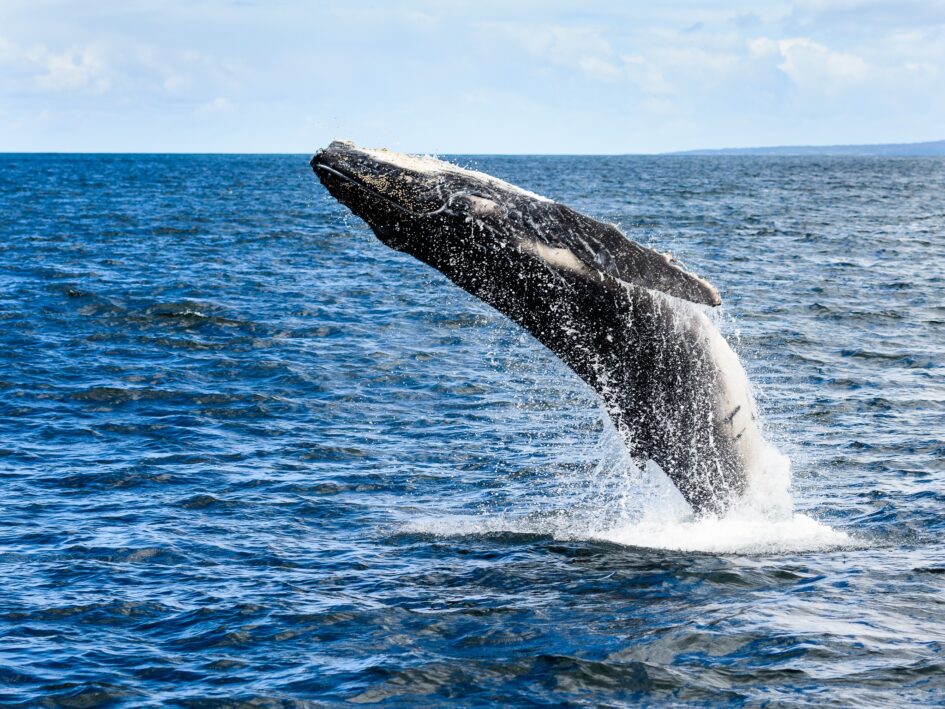
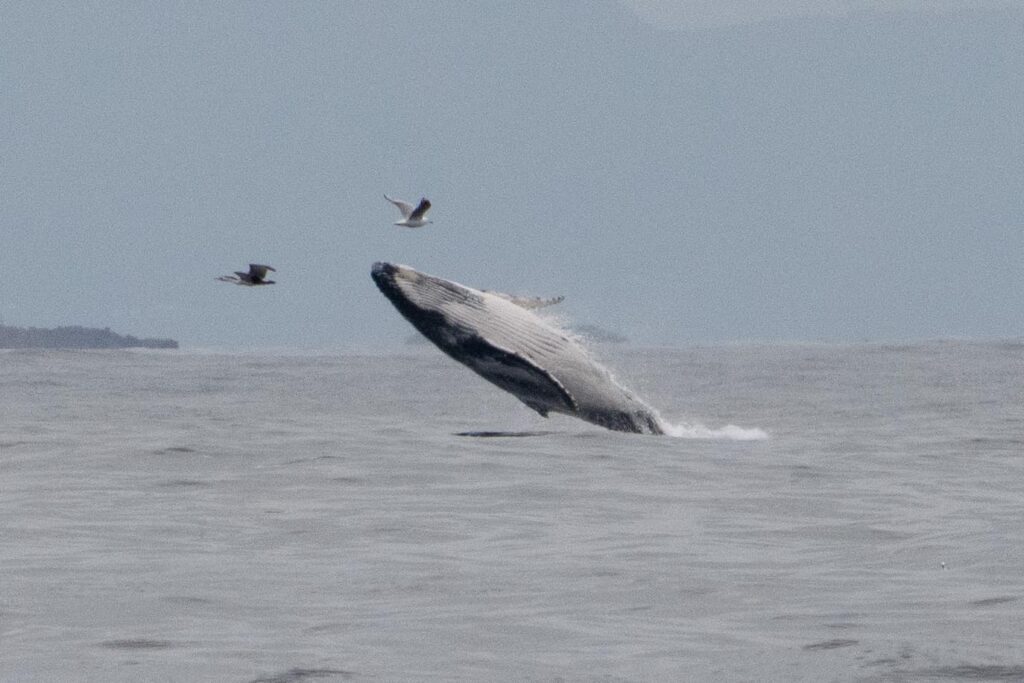
September 30, 2023 at 7:17 pm
You attack ‘Labor Party’s claims for their National Broadband Network…touted as the “information superhighway of the future”‘.
(It would have been, had Merde-och not carried his COALition bum boys to power in 2013 with the sole purpose of destroying the NBN, which posed a direct threat to his cable monopoly.)
‘The international superhighway of the future turned into a goat track, delivering some of the world’s slowest and most expensive internet.’
(See bum boys Abbott & Turnbull.)
The facts of this matter are readily available to even the meanest intelligence.
Research: it’s not that difficult.